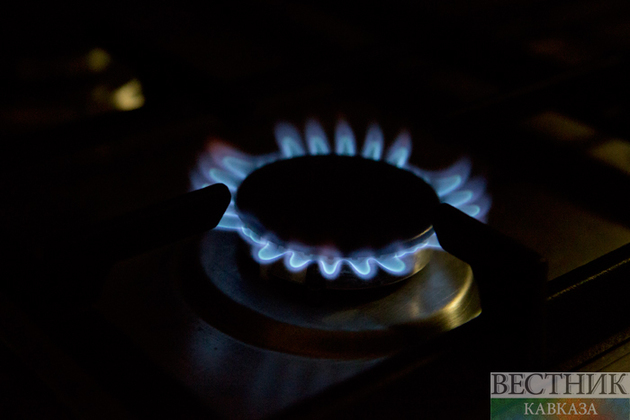At a time when media and financial analysts are fully focused on oil futures, natural gas markets are moving again. East Mediterranean gas futures, in particular, seem to be looking up due to some ongoing regional developments, Oil Price writes.
The unexpected but very successful visit of Abu Dhabi’s Crown Prince Mohammed bin Zayed to Turkey and Egypt may well have long-lasting consequences in the region. The multibillion agreements signed between Turkey and the UAE, especially the long-term investment agreements between the Turkish sovereign wealth fund and UAE corporations, such as Abu Dhabi Ports, seem to be an opening to a new era of cooperation in the region.
The overall optimism shown in Turkish and Abu Dhabi-based media sources, however, should be taken with a grain of salt as financial deals may not counter the ongoing power struggle between Turkey’s president Erdogan and Abu Dhabi’s Crown Prince Mohammed bin Zayed. Both nations are supporting political, military, and economic power projects in the East Mediterranean and MENA regions designed to increase their influence.Turkey’s president Erdogan will see the first visit of Crown Prince in 12 years as a major triumph. While Turkish media sources are very optimistic about the perceived thaw in relations, other regional players have been watching with anticipation to understand the real outcome of the meetings.
The move by Mohammed bin Zayed is not linked to a major change in regional geopolitics but is based on geo-economics. When looking at the dire state of the Turkish economy, high inflation rates, and the ongoing plunge of the Turkish Lira, there is the real threat of destabilization. Crown Prince is a master at identifying and understanding win-win situations. The move to open direct lines to Turkey is a wise one. The Turkish economy needs cash desperately, foreign direct investments are not only needed to support the Lira exchange rate, but also fledgling projects. Arab investors are more than willing to take part in the ongoing sell-off of Turkish assets. Large-scale energy, infrastructure, and financial assets are up for grabs, at much lower prices than one year ago.
Abu Dhabi’s Crown Prince’s trip to Turkey becomes increasingly interesting when you understand it as a coordinated effort of geo-economics and strategic military interests of the UAE, Egypt, Israel, and, most probably, Greece. The UAE, and particularly Abu Dhabi’s Crown Prince, is behind the Abraham Agreements with Israel, is a major investor in Egypt, and is eager to invest in Greece and Cyprus. These factors mean Mohammed bin Zayed has become one of the leading protagonists in the East Mediterranean.
Investments, security, and energy are all interlinked here, as all bi- and multi-lateral agreements are based on those issues. Abu Dhabi’s ADNOC, Mubadala, and even its defense companies are involved with Egypt, Israel, and Greece. The advantage for the UAE in cooperating with and supporting the East Med Gas Forum (EMGF), of which it wants to become a member, is clear. Not only could it open up new supra-regional energy projects, but it will also enhance the overall security situation significantly.
By forging and strengthening the ongoing East Med alliance while opening up discussions and investments in Turkey, Abu Dhabi is not only opening a win-win road to success but could also mitigate Turkey’s aggressive regional aspirations. For the EMGF members, especially Egypt, Israel, and Cyprus, the more direct and active involvement of Abu Dhabi in Turkey’s affairs is a potential advantage. The financial power of Emirati investment funds should not be underestimated, especially not in time of a financial market implosion. All this could force Erdogan to take a less adversarial stance towards offshore East Mediterranean gas exploration. For both sides, it could be a real win-win situation. Part of the East Med offshore gas and LNG options have hit a brick wall, due to the energy transition and geopolitics. By taking out political risks, or mitigating a potential Greek-Egyptian confrontation with Turkey, investors and operators could be incentivized to return. At the same time, the ongoing European Energy Crunch has opened up new LNG and pipeline gas markets. Now geoeconomics is becoming an increasingly important factor in the region.






